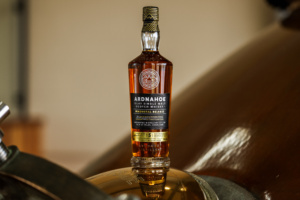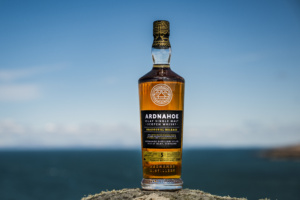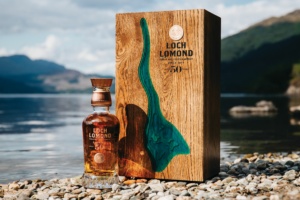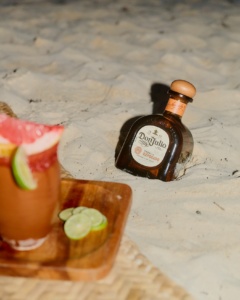The Irish Whiskey Renaissance
Irish whiskey is making a comeback in a big way. Our W Club Manager and resident Irish whiskey expert, Luke Crowley-Holland, gives us the low-down on the spectacular resurgence in the industry.
 Over the past two decades, the growth of Irish whiskey has been nothing short of remarkable. From sales of less than five million cases in 2010, to over fourteen million cases sold globally in 2022 - breaking €1 billion in export value for the first time - it's a story that's much celebrated but is now about to get really interesting.
Although there are some predictions sales of Irish could overtake Scotch in the US between now and 2030, the value and volume of Irish whiskey still look relatively abject compared to that of Scotch. However, the truth is we are only now entering the truly exciting period for Irish whiskey. Of the fourteen million cases sold in 2022, ten million of them were of Jameson; the popularity of this iconic blend has been integral to the growth in Irish whiskey since the turn of the century. But what makes 2022 and beyond most interesting for Irish whiskey isn't really the above statistics. But rather that December 2022 marked the tenth year of distillation at Kerry's Dingle Distillery.
Prior to the opening of the Dingle Distillery by Irish drinks industry pioneer, Oliver Hughes, in December 2012, there were only three operational distilleries on the island. The following ten years have seen the number of operational Irish distilleries surpass forty. As this new generation of distilleries - such as Echlinville, Glendalough, Tullamore, and Teeling - all start hitting the ten-year milestone, we will start seeing not only new areas of growth outside of the traditional brands but also more innovation in mash bills and cask types.
While there is a considerable number of Irish distilleries who currently are, and historically have, produced both triple and double distilled single malt whiskey, one of Irish whiskey's unique strengths and historical points of difference has been the production of pot still whiskey: distilled from a mixed mash of malted and unmalted barley. A review of the Irish Whiskey Technical File - submitted in 2021 - has sought to liberalise the definition of pot still, reflecting historical mash bills from the golden age of Irish whiskey.
Over the past ten years, massive international drinks companies such as Illva Saronno, William Grant & Sons, Diageo, Casa Cuervo, Quintessential Brands, Sazerac, Beam Suntory, and Brown-Forman have all followed Pernod Ricard in investing considerable funds in backing the future of Irish whiskey. At the same time, we've seen real innovation in all aspects of the journey from grain to glass from distilleries both with backing from the aforementioned companies, but crucially from small, independent producers.
From 2016 onwards, we started to see an influx of mature whiskey from smaller craft and/or independent distilleries. Irish whiskey drinkers have been or will be, treated to larger than presently available commercial releases from both genuine innovators and/or market trailblazers such as Dingle, Echlinville, Glendalough, Pearse Lyons, Shed Distillery, Teeling, and Waterford. In addition, there has been a slew of very exciting new projects undertaken from the likes of Killarney Distillery, Wayward Irish Spirits, Lough Ree, Micil Distillery, and Killowen to name but a few.
The majority of these distilleries - along with dozens of fantastic producers not mentioned - are joining Midleton Distillery in putting Pot Still back on the map. To go full circle to our original comparison to sales of Scotch in the original golden age of Irish whiskey production - in the 1800s when Irish whiskey outsold Scotch 5-1 - the most consumed style of in the world was pot still whiskey. In this period, less than 10% Irish whiskey producers distilled a whisky akin to a single malt, the rest distilled a variation of what we'd call pot still. Therefore, for our last word this Spring let's raise a glass to the innovators and believers in Irish whiskey, and the new brands and producers we're going to be falling in love with over the next ten years.
Over the past two decades, the growth of Irish whiskey has been nothing short of remarkable. From sales of less than five million cases in 2010, to over fourteen million cases sold globally in 2022 - breaking €1 billion in export value for the first time - it's a story that's much celebrated but is now about to get really interesting.
Although there are some predictions sales of Irish could overtake Scotch in the US between now and 2030, the value and volume of Irish whiskey still look relatively abject compared to that of Scotch. However, the truth is we are only now entering the truly exciting period for Irish whiskey. Of the fourteen million cases sold in 2022, ten million of them were of Jameson; the popularity of this iconic blend has been integral to the growth in Irish whiskey since the turn of the century. But what makes 2022 and beyond most interesting for Irish whiskey isn't really the above statistics. But rather that December 2022 marked the tenth year of distillation at Kerry's Dingle Distillery.
Prior to the opening of the Dingle Distillery by Irish drinks industry pioneer, Oliver Hughes, in December 2012, there were only three operational distilleries on the island. The following ten years have seen the number of operational Irish distilleries surpass forty. As this new generation of distilleries - such as Echlinville, Glendalough, Tullamore, and Teeling - all start hitting the ten-year milestone, we will start seeing not only new areas of growth outside of the traditional brands but also more innovation in mash bills and cask types.
While there is a considerable number of Irish distilleries who currently are, and historically have, produced both triple and double distilled single malt whiskey, one of Irish whiskey's unique strengths and historical points of difference has been the production of pot still whiskey: distilled from a mixed mash of malted and unmalted barley. A review of the Irish Whiskey Technical File - submitted in 2021 - has sought to liberalise the definition of pot still, reflecting historical mash bills from the golden age of Irish whiskey.
Over the past ten years, massive international drinks companies such as Illva Saronno, William Grant & Sons, Diageo, Casa Cuervo, Quintessential Brands, Sazerac, Beam Suntory, and Brown-Forman have all followed Pernod Ricard in investing considerable funds in backing the future of Irish whiskey. At the same time, we've seen real innovation in all aspects of the journey from grain to glass from distilleries both with backing from the aforementioned companies, but crucially from small, independent producers.
From 2016 onwards, we started to see an influx of mature whiskey from smaller craft and/or independent distilleries. Irish whiskey drinkers have been or will be, treated to larger than presently available commercial releases from both genuine innovators and/or market trailblazers such as Dingle, Echlinville, Glendalough, Pearse Lyons, Shed Distillery, Teeling, and Waterford. In addition, there has been a slew of very exciting new projects undertaken from the likes of Killarney Distillery, Wayward Irish Spirits, Lough Ree, Micil Distillery, and Killowen to name but a few.
The majority of these distilleries - along with dozens of fantastic producers not mentioned - are joining Midleton Distillery in putting Pot Still back on the map. To go full circle to our original comparison to sales of Scotch in the original golden age of Irish whiskey production - in the 1800s when Irish whiskey outsold Scotch 5-1 - the most consumed style of in the world was pot still whiskey. In this period, less than 10% Irish whiskey producers distilled a whisky akin to a single malt, the rest distilled a variation of what we'd call pot still. Therefore, for our last word this Spring let's raise a glass to the innovators and believers in Irish whiskey, and the new brands and producers we're going to be falling in love with over the next ten years.
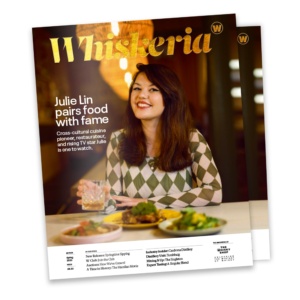 The original feature is from the Spring 2023 edition of Whiskeria, delivered to the door of W Club subscribers and also free with any Whisky Shop purchase in-store or online.
The original feature is from the Spring 2023 edition of Whiskeria, delivered to the door of W Club subscribers and also free with any Whisky Shop purchase in-store or online. 4.7/5 with 10,000+ reviews
4.7/5 with 10,000+ reviews
